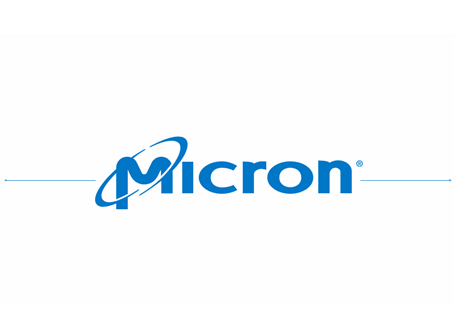Micron Gains SSD Controller Technology Through Tidal Systems Aquisition
One day after an earnings call with investors, Micron Technology (NASDAQ:MU) has acquired Tidal Systems for an undisclosed sum. In yesterday's earnings call, Micron disclosed that it would ship 16nm TLC NAND flash this quarter. 3-bit per cell (TLC) flash is cheaper to manufacture, but its higher error rates require powerful system on chip (SoC) processors, called NAND flash controllers. These controllers require sophisticated error correction and control features. The preferred method at this time is Low Density Parity Check (LDPC), and very few SSD controllers shipping today have it.
Micron has desperately needed an in-house controller to combat the rise of Samsung in the consumer and enterprise SSD space. Without a controller under the Micron umbrella, the company was forced to rely on third-party SoC makers such as Marvell and Silicon Motion, Inc. to bring products to market.
Until now, Micron only made two of the three vital components needed to build solid-state drive products. That put Micron in a poor position to take advantage of in-house DRAM and NAND production, because the company still had to wait on component partners to release controllers and tune firmware for its specific NAND products.
Micron inked a deal to purchase Tidal Systems just hours ago, and thus gained at least two advanced NAND flash processors along with some of the most talented engineers in this field. Mike Lee and Dr. Cody Wu founded Tidal Systems in 2014, and both have extensive background in both electrical engineering and executive leadership.
Mike Lee was part of Link_A_Media Devices (LAMD) and sold the company to SK Hynix. Dr. Cody Wu was part of SandForce and is considered a pioneer of next generation LDPC encoding and decoding. Both have led design teams that created some of the most advanced NAND flash controllers in existence.
We've seen Tidal Systems products first hand but have yet to test either the PCI Express NVMe or SATA 6 Gb/s processors. A KPCB report stated this about Tidal Systems:
Leveraging our Revolutionary DATA-Compression and Error-Correction (LDPC) Algorithms to create most Powerful System Controller (SoC) and related firmware/software systems solutions to address fast growing NAND Flash Memory based storage products, which is essential for Cloud Computing; Big Data Center; Smartphone, Tablet PC and all Ultra-Portable Computing Appliance.
Get Tom's Hardware's best news and in-depth reviews, straight to your inbox.
Regardless of what Micron spent to acquire Tidal Systems, this was a purchase Micron needed to compete with Samsung going forward. With all three major SSD components in-house, the company can bring exclusive products to market faster and with less overhead. Having a controller and firmware team also gives Micron more control during OEM validation.
Integrating an SSD controller company into a larger corporation can be messy work, as companies typically experience significant brain drain after acquisitions. As seen with some recent SSD controller acquisitions, this employee turnover can be crippling, so much of Micron's success will depend upon how well it integrates the new IP into its portfolio.

Chris Ramseyer was a senior contributing editor for Tom's Hardware. He tested and reviewed consumer storage.
-
Blueberries Micron makes extraordinary controllers and their MLC NANDs are pretty competitive. If this means cheaper TLC for consumers they could regain the market from SamsungReply -
hst101rox I suppose they didn't have the resources or desire to make their own controller for TLC NAND flash?Reply
Wonder when Sandforce 3xxx SSDs will come out for SATA 3 , PCI Express -
CRamseyer I don't know why they would try when Tidal was available. In an earning call last year a Micron engineer stated that the company was working on a controller. A company the size of Micron (Crucial, Lexar brands) would have a few teams working independently on it. That's a lot of money spent for development. There are companies out there that have shipping controllers and they are not very good. When it comes to the third party SoC makers, very few have been succesful in the high performance category. The engineers from both SandForce and LAMD were both part of successful products.Reply
